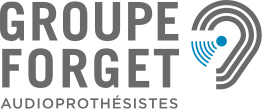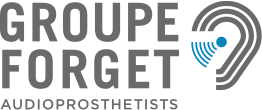
Quickly test your hearing from the comfort of home
Have you noticed that your hearing isn’t great? Are you asking people to repeat what they’ve said even though you think you’re hearing well? Then a hearing screening is the first step to take to better hearing!
Did you know you could do a quick hearing screening right in your living room? If you’re not quite ready to make an appointment with an audioprosthetist in a clinic, you still have two options: an online hearing screening or a screening questionnaire.
Besides getting a hearing screening done by an audioprosthetist in a clinic, there is also the possibility of doing an online hearing screening yourself that takes just 60 seconds.
During the screening, you will wear headphones and then listen to 12 different sounds from low to high pitched. That’s it! Then you’ll receive an email with your results, which will give you a good idea of the type of sounds you have trouble hearing.
Then, if necessary, you can make an appointment with an audiologist for a comprehensive hearing test.
You can also answer a short questionnaire to screen for possible hearing problems. This simple and effective tool doesn’t require any special equipment and will only take two minutes of your time!
Answer the 15 quick and easy questions on your hearing in different situations. The goal is to determine if you need to do a comprehensive hearing test with an audiologist.
Question example:
When you speak to one person, do you ask the person to repeat what was said?
Ο Yes Ο Sometimes Ο No
You will receive an email with your results, which will determine whether you should have an audiology assessment done.
To make an appointment for a free hearing screening with an audioprosthetist in our clinic, call 1-888-368-3637 or make an appointment online.
Note that if it appears that you are suffering from significant hearing loss, the audioprosthetist will refer you to an audiologist for a comprehensive hearing test.
*The hearing screening questionnaire was created by Hélène Caron, M.O.A., Audiologist from Institut Raymond-Dewar and scientifically validated by Michel Picard, Ph.D., Professor of Audiology at the Université de Montréal. Published in collaboration with the Fondation Surdité et Communication at the Institut Raymond-Dewar.










